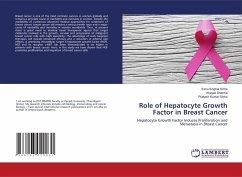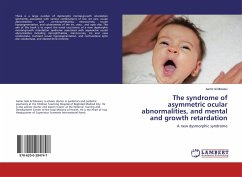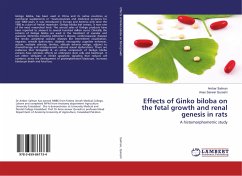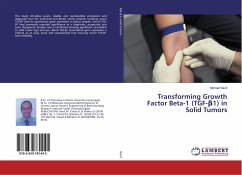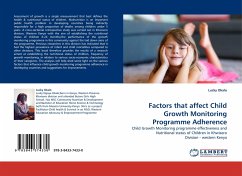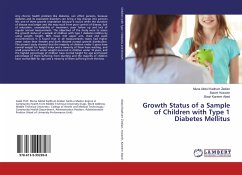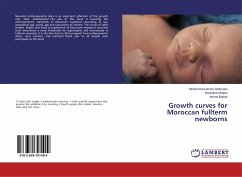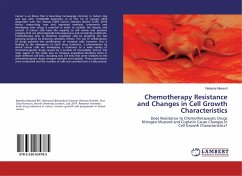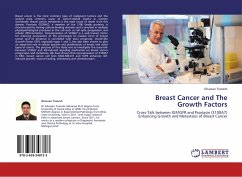
Breast Cancer and The Growth Factors
Cross-Talk between IGF/IGFR and Psoriasin (S100A7) Enhancing Growth and Metastasis of Breast Cancer
Versandkostenfrei!
Versandfertig in 6-10 Tagen
32,99 €
inkl. MwSt.

PAYBACK Punkte
16 °P sammeln!
Breast cancer is the most common type of malignant tumors and the second most common cause of cancer-related deaths in women worldwide. Breast cancer metastasis is the main cause of death from this disease. Psoriasin (S100A7), a member of the S100 family proteins, is characterized by having calcium-binding domains and is involved in multiple physiopathological processes in the cell such as cell cycle progression and cellular differentiation. Overexpression of S100A7 is a well known factor for inducing progression of the preinvasive to invasive form of breast cancer and its presence is correlat...
Breast cancer is the most common type of malignant tumors and the second most common cause of cancer-related deaths in women worldwide. Breast cancer metastasis is the main cause of death from this disease. Psoriasin (S100A7), a member of the S100 family proteins, is characterized by having calcium-binding domains and is involved in multiple physiopathological processes in the cell such as cell cycle progression and cellular differentiation. Overexpression of S100A7 is a well known factor for inducing progression of the preinvasive to invasive form of breast cancer and its presence is correlated with poor prognosis. Insulin-like Growth Factor (IGF), especially types 1 and 2, has also been shown to play an important role in cellular growth and proliferation of breast and other types of cancer. The purpose of this study was to investigate the cross-talk between S100A7 and IGF-induced signaling mechanism on breast cancer progression and metastasis. We have shown that overexpression of S100A7 in ER - breast cancer cell lines MDA-MB-231 and SCP6 enhances IGF-induced growth, wound healing, chemotaxis and chemoinvasion.



